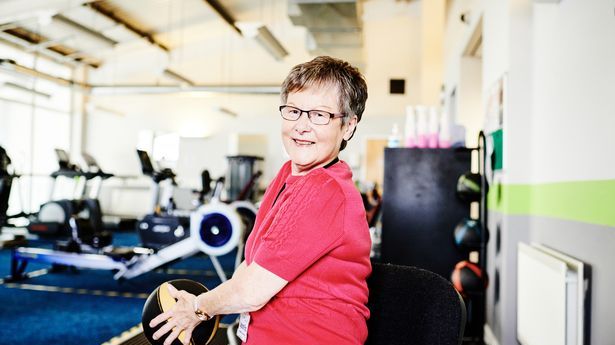Press release -
EXPERT COMMENT: How running can help you cope with stress at work
In an article written for the Conversation, Kate Black and Russell Warhurst, Business and Law, Northumbria University, discuss the value of running as a coping mechanism for work-related stress.
If grabbing your trainers and heading out for a run is your way of coping with a stressful week at work, you’re not alone. According to England Athletics, more than six million adults in England ran at least once a week in 2021, and around two-thirds cite reducing stress as a reason for running.
Running is a valuable way to help us deal with stress, including from our jobs. Our research investigated how taking part in “parkrun” – a weekly organised mass 5km run held globally – affected employees from a range of organisation sizes and types. It shows that running can help us to manage the expectations, frustrations and pressures of contemporary work more effectively.
Research suggests that one in seven of us experience mental health problems associated with their work. And research also shows that our work lives are becoming more intense – we face the expectation to get more done at work and to do it more quickly. This may make us feel as though we are never quite good enough, and it sets us up for failure. Repeated failure can translate into us feeling that we ourselves are a failure.
All this erodes our sense of purpose in life. This means that work can not only be physically and mentally exhausting but also damaging to our sense of self.
There’s no doubt that workplace culture needs to change. In the meantime, though, our research has shown that running can help address these feelings. Running can offer us a community and an identity beyond our work selves – a valued sense of self over which we have control.
A different self
The people we spoke to in our research emphasised that having the identity of a runner, and the associated feeling that they belonged to a running community, gave them a sense of self and of value. This contrasted strongly with their feeling that work was either leaving them feeling insignificant or was corrupting who they really wanted to be.
Second, our research on how running can help managers deal with workplace issues suggests that running builds resilience. In particular, it can help us with our ability to cope with failure.
Running comes with its own risks of failure. For example, there’s a good chance we might at some stage injure ourselves – but we know that this is a possibility and learn how to manage it, perhaps by running a shorter distance or accepting slower times as we recover.
What’s more, if runners exercise as members of a group, failure is encountered collectively. Injuries happen, targets are missed. Failures are common and normal. This may neutralise, or at least reduce, the negative feelings that come with failure. Exposure to failure can help us examine our emotions about it, and cultivate a tolerance of failure which can arguably then be transferred back to our work.
Don’t go too far
But our research has also warned that too much running – especially when accompanied by social media and the use of performance tracking apps – can fuel our desire for constant achievement and competition. Runners can be easily beguiled by a sense of achievement, duped into a need to run further, faster or more often than others in their community – whether that’s friends and colleagues or a person’s online community. In this context, running can reinforce the disciplining tendencies of contemporary work.
An over-reliance upon running – whether for escape or for relaxation, especially when – as is inevitable – injury occurs, risks accelerating the corrosive sense of never being quite good enough that characterises contemporary work and life.
So, running can result in significant rewards. Besides the more obvious physical health benefits, it can enable people to find an identity that fits with who they want to be, and to feel a sense of belonging to a community of like-minded runners. But take care – don’t let it consume you.
Topics
Categories
UNIVERSITY OF THE YEAR 2022 (Times Higher Education Awards)
Northumbria is a research-intensive modern university with a global reputation for academic excellence. Find out more about us at www.northumbria.ac.uk
--- Please contact media.communications@northumbria.ac.uk with any media enquiries or interview requests ---









